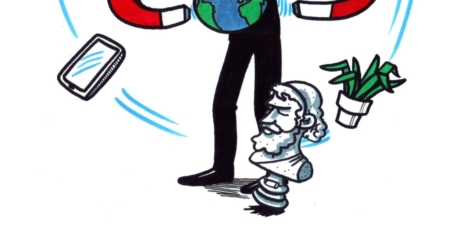December 26, 2016
The Winter 2016 issue of Work&Place is available now 0
 The Winter 2016 issue of Work&Place is now available to view online. In this edition… Neil Usher, Workplace Director at Sky offers a first hand account of the story behind the firm’s remarkable new offices at the Osterley campus in London; Kate Langan explores some of the implications of the growing digitisation of the workplace; Jim Ware looks at how the challenge of creating effective meeting spaces is now a strategic concern; John Blackwell tries to make sense of falling productivity levels when we have all the tools and know how to increase it; David Woolf makes the case for designing better collaborative spaces; Mark Eltringham looks forward to an almost entirely unpredictable future for workplaces in the 21st Century; and Karen Plum and Andrew Mawson set out the factors that drive knowledge worker productivity. The PDF edition is available to view and download here. Or view online here.
The Winter 2016 issue of Work&Place is now available to view online. In this edition… Neil Usher, Workplace Director at Sky offers a first hand account of the story behind the firm’s remarkable new offices at the Osterley campus in London; Kate Langan explores some of the implications of the growing digitisation of the workplace; Jim Ware looks at how the challenge of creating effective meeting spaces is now a strategic concern; John Blackwell tries to make sense of falling productivity levels when we have all the tools and know how to increase it; David Woolf makes the case for designing better collaborative spaces; Mark Eltringham looks forward to an almost entirely unpredictable future for workplaces in the 21st Century; and Karen Plum and Andrew Mawson set out the factors that drive knowledge worker productivity. The PDF edition is available to view and download here. Or view online here.




































December 15, 2016
Commuting – stressful, annoying or just another opportunity? 0
by Mike James • Comment, Flexible working, Wellbeing
(more…)